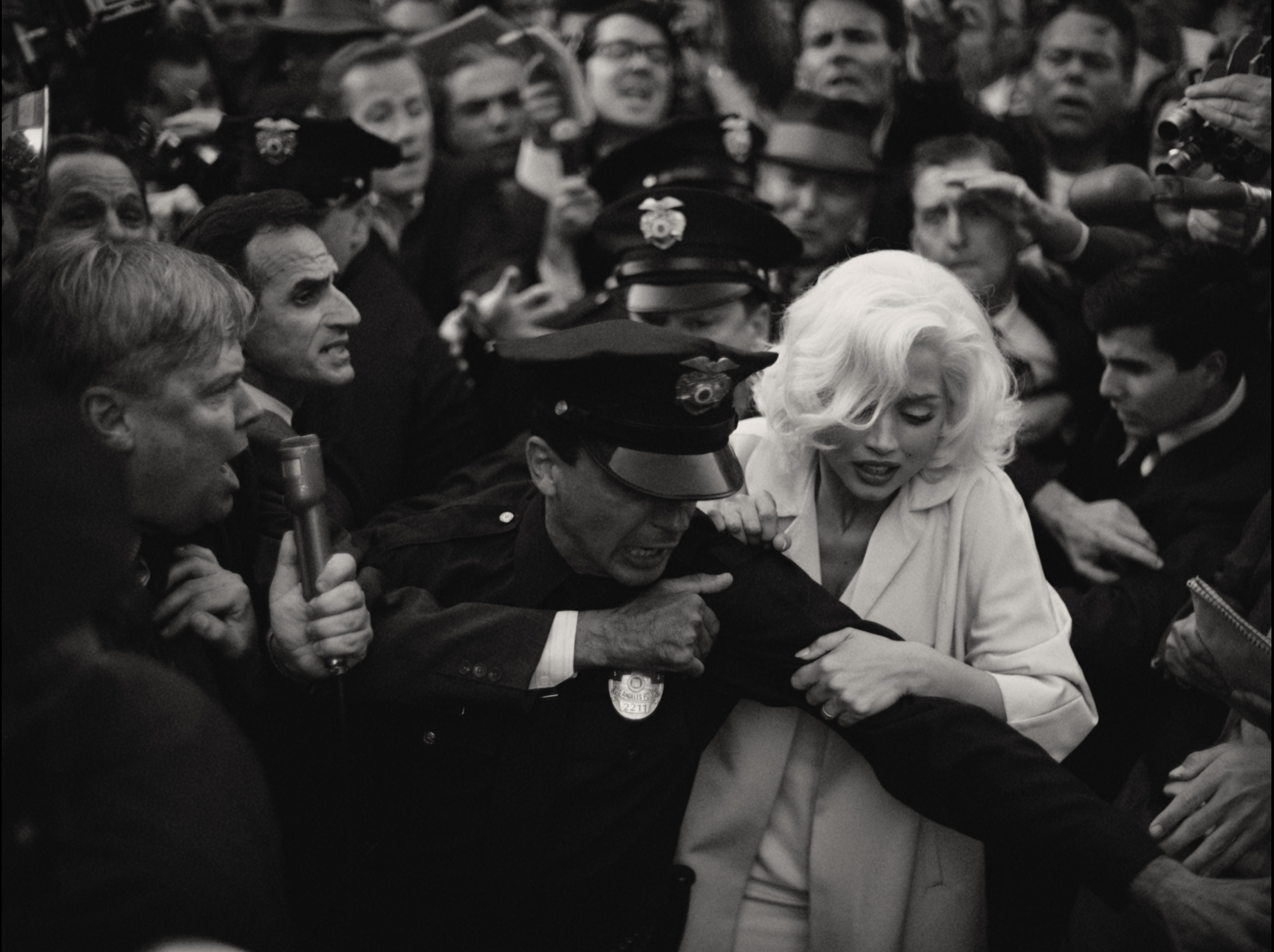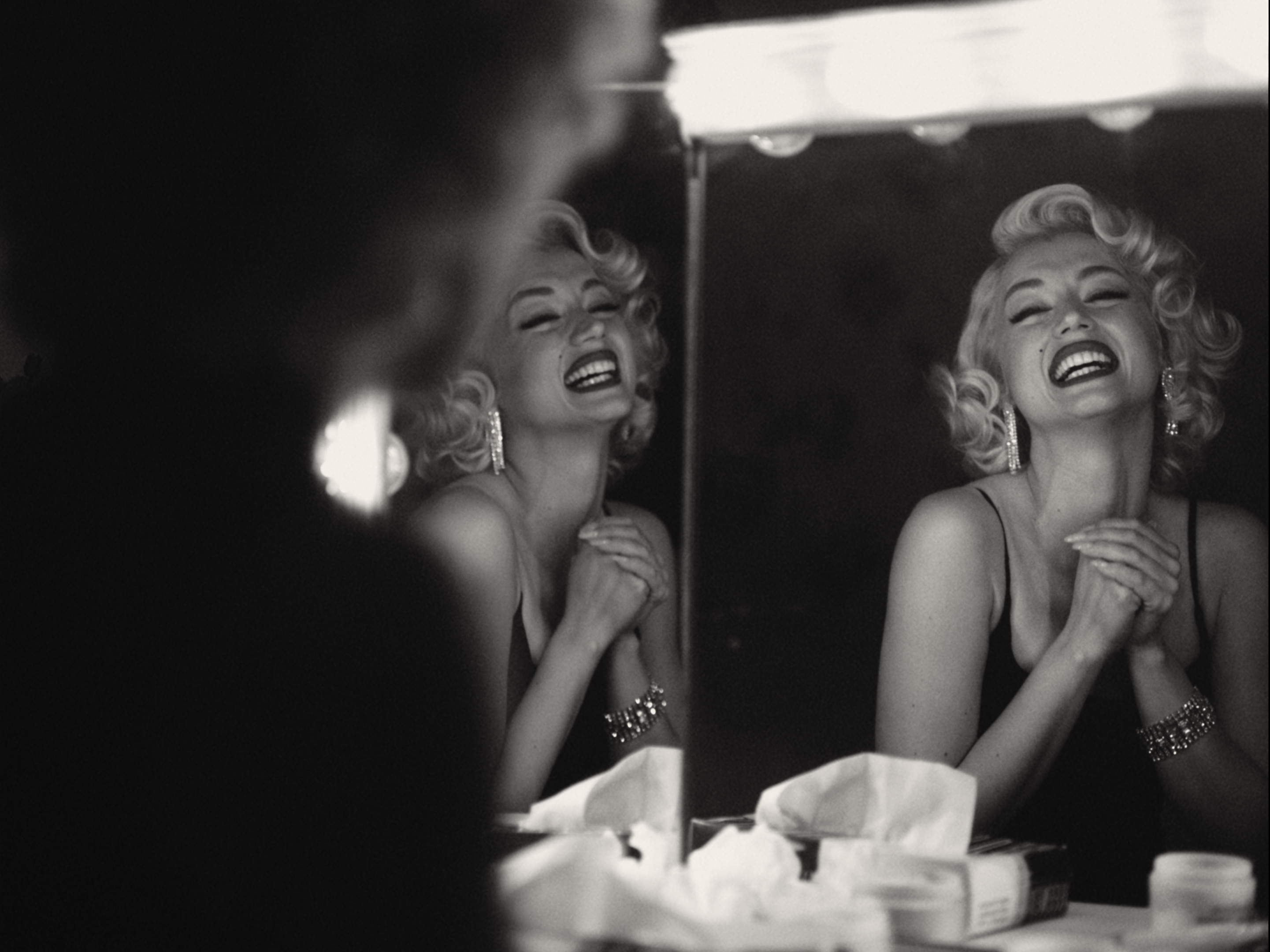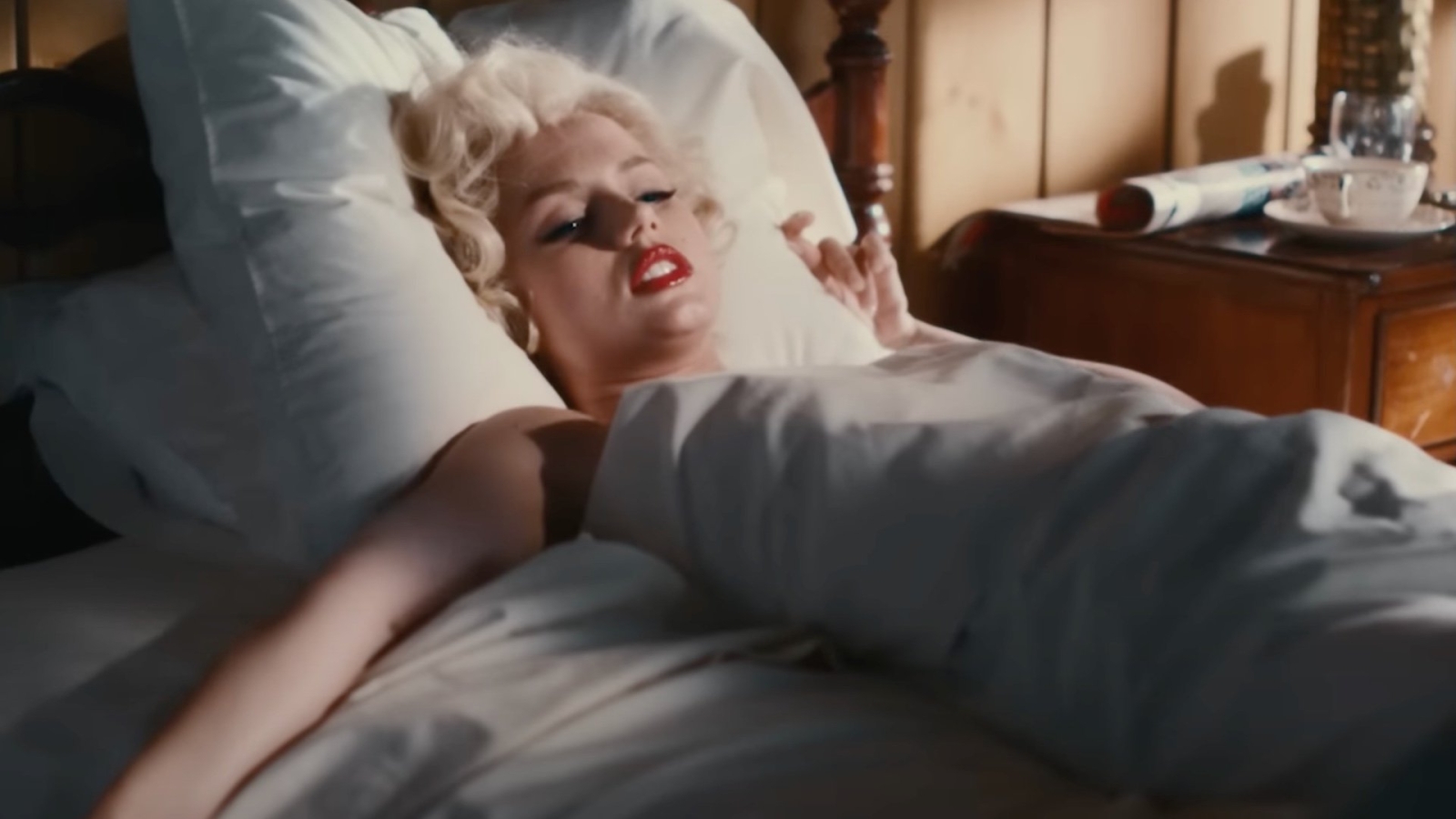Like James Dean or Diana Spencer, Marylin Monroe has belonged to the public sphere for decades, in a vulturous pop culture sort of way. Monroe’s life, work and image propelled her into the kind of superstardom for which no person could possibly prepare themselves. Her death by suicide at 36 cemented her immortality as a cultural colossus. Andrew Dominik’s Blonde, based on the Joyce Carol Oates novel of the same name, wants us to believe the suicide was Monroe’s defining moment, the conclusion of snowballing brutality over many years. In some ways, it was. Blonde forgets about the ways it wasn’t.
“Marilyn Monroe…,” one character – and the figures in this movie are characters based on fact rather than legitimate translations of their real-life counterparts – muses over the name: “it’s so phony. Like you gave birth to yourself. I love it.” And in a manner of speaking, the actor sort of did give birth to herself. And it was phony. And people loved it. But she was Norma Jean before she was Marilyn Monroe, star of Gentlemen Prefer Blondes, The Seven-Year Itch and Some Like It Hot, wife of Joe DiMaggio, wife of Arthur Miller, prized asset of Darryl F. Zanuck and 20th Century Fox. The implication of property here is deliberate. Even before her death, Marylin Monroe entered the sort of broad social awareness in popular culture that robbed her of her personhood. Dominik believes the thievery was comprehensive, though his lens is myopic to a fault.
This sense of ownership of Monroe, by men, by films, by the public, is palpable in Blonde. And one is pummelled with the impression that Dominick himself has adopted the mantle of owner, an impression compounded by the bullishness of his recent press tour, which included suggestions that Gentlemen Prefer Blondes was a movie about “well dressed whores” (it isn’t) and submitting that Blonde was in some way comparable to Raging Bull and Citizen Kane in quality (it also isn’t). Blonde has the ambition of those much better films, but it can’t concentrate. It also degrades its subject in a way that Scorsese and Welles knew well not to, saturating Monroe with the comprehensive wet of severe misogyny, revelling in her misery.
Like Raging Bull and Citizen Kane, the film examines how broken systems can break a person. Blonde is a grim indictment on the way Hollywood would, and does, consume women. At the height of her career, Monroe was one of the most photographed people in the world. Camera bulbs deliberately recall leering eyeballs. The film examines the experiences of many women in Hollywood by circling the experiences of THE woman, which Monroe assuredly is. And sex is Monroe’s currency, whether she likes it or not.
But Dominik’s film is an exercise in style that diminishes everything it wants to convey because of severe naval gazing. There’s substance, there’s insight, and most of it is lost within a whirlwind of idiosyncratic wildness. Blonde wears its artistic ambitions proudly on its sleeve, playing loose with both time and style. The film oscillates between colour and black and white, switching aspect ratios seemingly at random, positioning scenes with no significant connection side by side. It’s a lot and also, often, it’s not very much.
Oates’ novel reportedly plays fast and loose with facts. Relationships with Charlie Chaplin Jr. and Edward G. Robinson never happened. The truth behind a particularly harrowing and graphic interaction with JFK is doubtful. Most of the time, Blonde is more interested in metaphor than fact. Still, most biographical pictures play pretty fast and loose with their source material. At least Blonde is honest about it.
But is Blonde honest about Monroe? This is doubtful, to a point. There’s no expression of the Marilyn Monroe who founded her own production company or went to evening classes at UCLA to study literature, or who had the audacity and savvy to forge herself into an international brand. Dominik pays lip service to Monroe’s depth while portraying her as an oversized infant, manipulated and exploited at every turn. Dominik has made a movie about the most lurid aspects of Monroe’s story, seemingly wanting to convey something universal about the female experience. But in pursuing this truth, Dominik has engaged in the very thing he admonishes – exploitation of someone who has been manipulated beyond recognition by public scrutiny. His lens leers as keenly, as reductively, as those flashing bulbs.
Blonde is somewhat of a missed opportunity, despite its fierceness and uniqueness. Monroe herself is short-changed, the film not providing the answers that she is owed. Any wisdom regarding women in show business is rendered complicated by singling out Monroe as a figurehead for all women, yet the use of her singular experience muddies the waters for aggregation. Nuance isn’t the name of the game. Blonde is a sledgehammer.
Blonde is currently streaming on Netflix.


